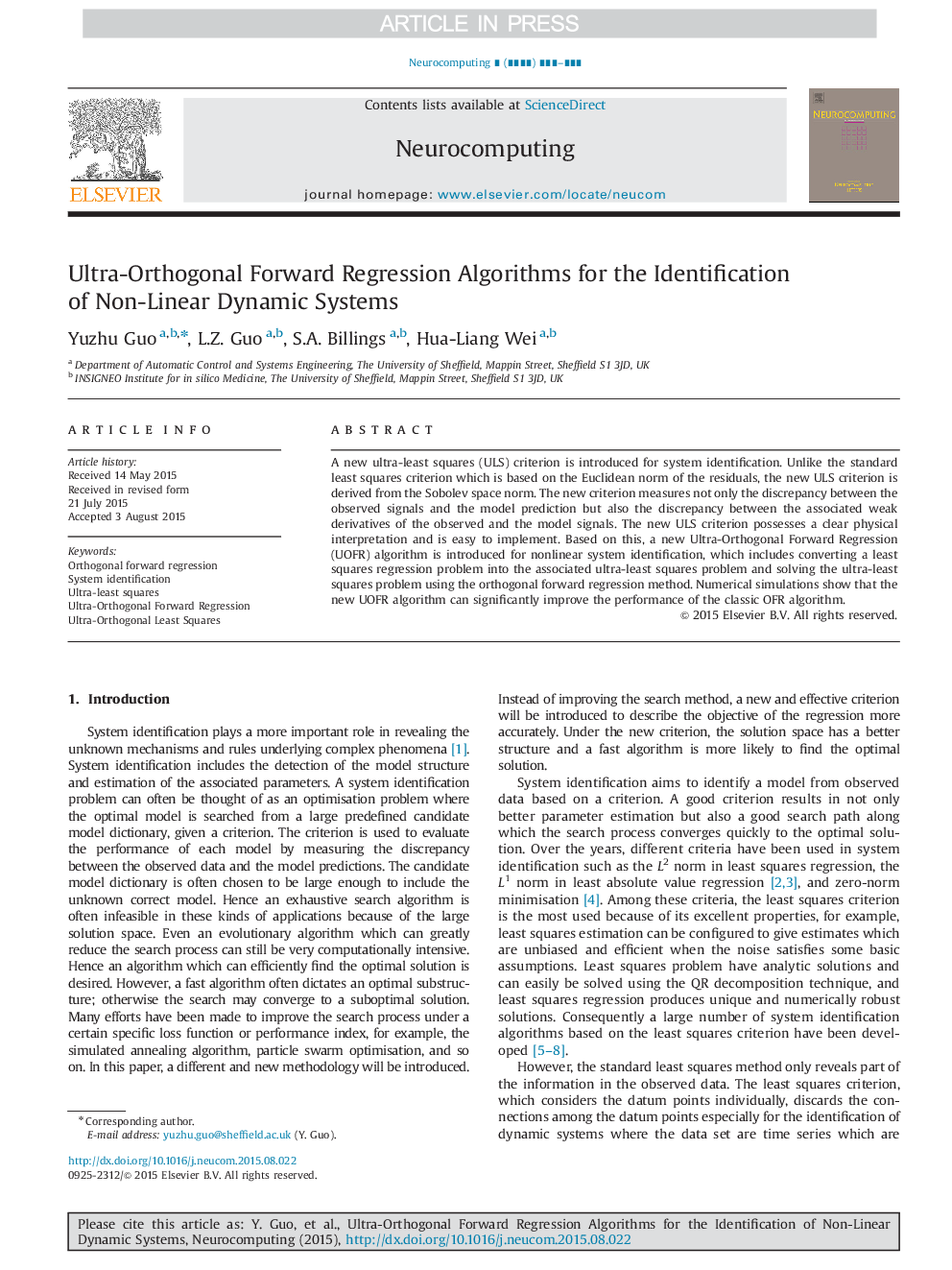| Article ID | Journal | Published Year | Pages | File Type |
|---|---|---|---|---|
| 10326411 | Neurocomputing | 2016 | 9 Pages |
Abstract
A new ultra-least squares (ULS) criterion is introduced for system identification. Unlike the standard least squares criterion which is based on the Euclidean norm of the residuals, the new ULS criterion is derived from the Sobolev space norm. The new criterion measures not only the discrepancy between the observed signals and the model prediction but also the discrepancy between the associated weak derivatives of the observed and the model signals. The new ULS criterion possesses a clear physical interpretation and is easy to implement. Based on this, a new Ultra-Orthogonal Forward Regression (UOFR) algorithm is introduced for nonlinear system identification, which includes converting a least squares regression problem into the associated ultra-least squares problem and solving the ultra-least squares problem using the orthogonal forward regression method. Numerical simulations show that the new UOFR algorithm can significantly improve the performance of the classic OFR algorithm.
Related Topics
Physical Sciences and Engineering
Computer Science
Artificial Intelligence
Authors
Yuzhu Guo, L.Z. Guo, S.A. Billings, Hua-Liang Wei,
